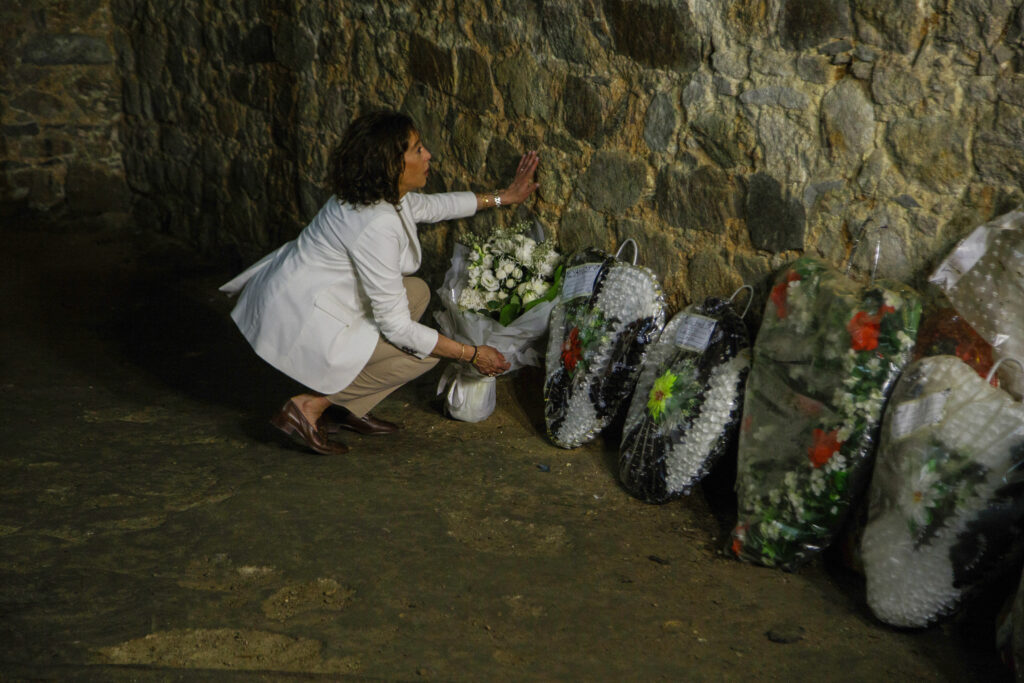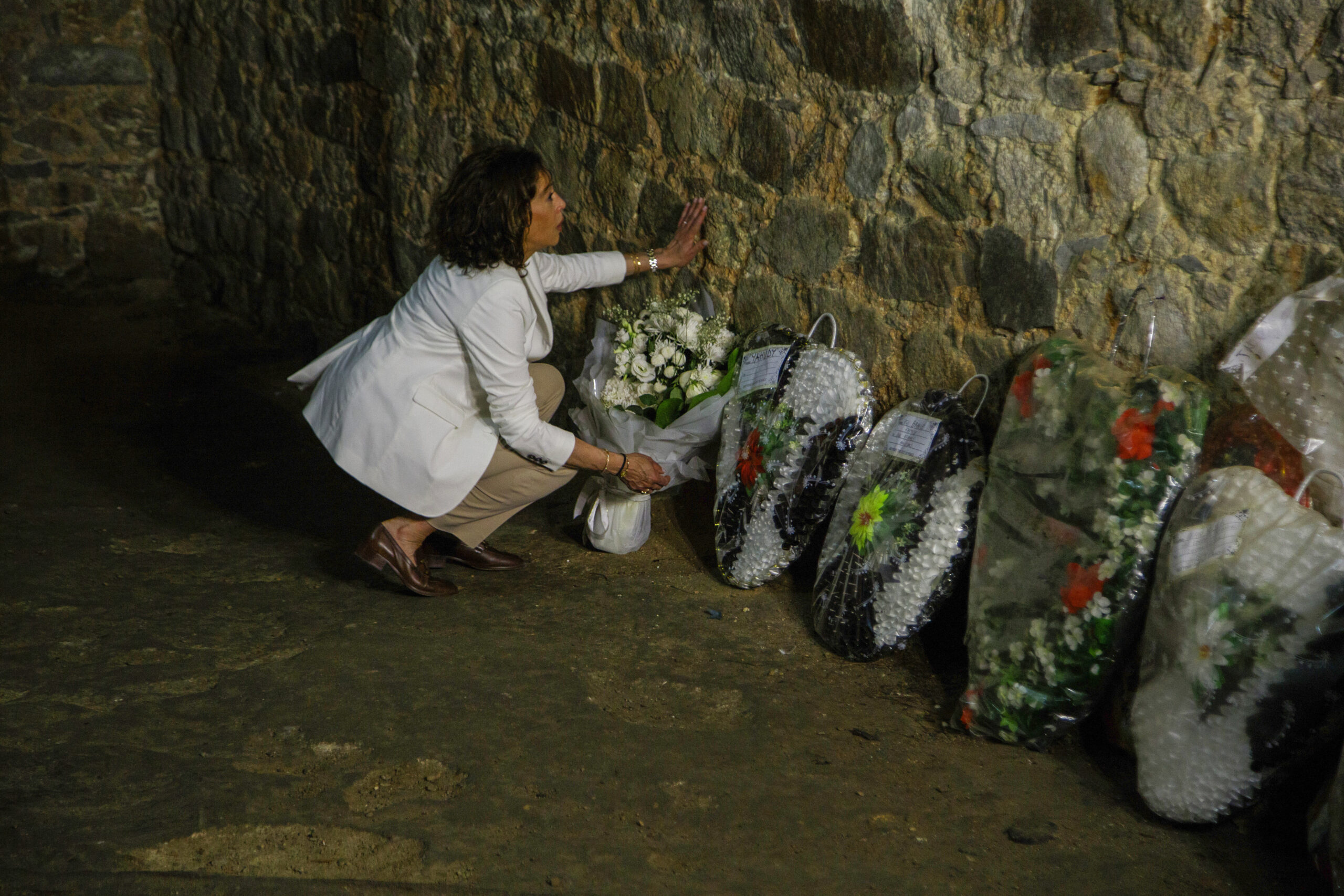LUSAKA, Zambia (AP) — Vice President Kamala Harris may have traveled halfway around the world to reach this corner of Africa, but she was welcomed as a “daughter of our own country” when she sat down with Zambia’s leader.
The visit, President Hakainde Hichilema said, was “like a homecoming.”
It was a reference to a childhood trip to Zambia when Harris’ grandfather worked here, but she heard similar refrains throughout her weeklong trip to Africa that ended Saturday.
In Ghana, President Nana Akufo-Addo told Harris “you’re welcome home.” In Tanzania, a sign in Swahili told Harris to “feel at home.”
PHOTOS: Kamala Harris in Africa

The greetings were a reflection of the enduring connections between the African diaspora in the United States and Africans themselves, something that America’s first Black vice president fostered during her trip. Although her historic status has led to extreme scrutiny and extraordinary expectations in Washington, it was a source of excitement over the past week.
“She is the ambassador we need at the moment,” said Tracy Sharpley-Whiting, who chairs African American and Diaspora Studies at Vanderbilt University. “That’s a joyous thing.”
Harris’ background did not spare her from difficult conversations about U.S. foreign policy and she was pressed in Africa about visas, private investment and funding to deal with climate change. There’s also skepticism over whether the United States will follow through with its commitments and over its attempts to rival China’s own influence in Africa.
But at every stop, Harris was warmly embraced.
“Kamala Harris! Kamala Harris!” young girls shouted on the tarmac when she landed in Lusaka on Friday. She approached them with her hand on her chest in gratitude. “The VP is here! The VP is here!”
The last week produced none of the unfortunate viral moments that dogged Harris on previous foreign trips, such as when she laughed off a question about visiting the U.S. border with Mexico or when she said the U.S. had an “alliance with the Republic of North Korea.”
Instead, the trip to Africa was largely overshadowed by a cascade of U.S. news, including a school shooting in Nashville, Tennessee, and the indictment of former President Donald Trump.
But anyone tuning in would have seen Harris hanging out with actor Idris Elba and actor-singer Sheryl Lee Ralph at a recording studio in Accra, Ghana’s capital, or collecting business cards from young entrepreneurs in Dar es Salaam, Tanzania, or walking through rows of peppers at a farm outside of Lusaka. Sometimes she felt comfortable enough to discard her prepared remarks, a rarity for a politician who sticks closely to the script in Washington.
Although Africa remains a poor continent with almost half the population lacking access to electricity, Harris’ itinerary was aimed at portraying it as young, dynamic, innovative — and primed for American business opportunities, particularly with leaders from the diaspora.
The most glamorous event was a state banquet at the Ghanaian presidential palace known as the Jubilee House, where Black American celebrities, business people and civil rights activists gathered.
In her toast, Harris paid tribute to attendees who “represent the glorious beauty of the African diaspora” and she spoke about “our shared destiny.”
Akufo-Addo, the president, honored Harris with a local touch.
“Since you were born on a Tuesday, I’m sure you would not mind the Ghanaian name Abena, the Akan name for all Tuesday born females, to your name,” he said.
Raising his glass, Akufo-Addo toasted “the honorable Kamala Devi Abena Harris.”
Marc Morial, president of the National Urban League, said there was a “festive and family” atmosphere to be there with the first Black vice president in U.S. history.
“It’s a moment of pride,” he said. “And it’s a moment of opportunity.”
The trip could be Harris’ last foray overseas before the 2024 campaign begins in earnest. President Joe Biden is expected to announce his reelection run, and Harris will be a prime target for Republican attacks.
Some of that is the result of Biden’s age — he would be 82 when starting a second term in 2025 — and Harris’ status a heartbeat away from the presidency.
But like President Barack Obama before her, Harris has faced racism and questions when it comes to her heritage.
Her father was born in Jamaica, where most Black citizens trace their heritage to Africa through the slave trade, making it likely that Harris’ own ancestors were enslaved.
Her mother was born in India, and the vice president was raised in California, contributing to a multicultural background that defies easy characterization. (It was her mother’s Indian father who worked in Zambia decades ago, helping to settle refugees in the newly independent African country.)
But Harris wrote in her book, “The Truths We Hold,” that her mother was clear-eyed about what it meant to raise two daughters in the United States. “She knew that her adopted homeland would see Maya and me as black girls, and she was determined to make sure we would grow into confident, proud black women,” Harris wrote.
Harris wrote that when she arrived at Howard University in Washington, a predominantly Black institution that has educated generations of Black political and cultural leaders, she thought, “This is heaven.”
“There were hundreds of people, and everyone looked like me,” Harris wrote. “The campus was a place where you didn’t have to be confined to the box of another person’s choosing.”
Harris was San Francisco’s district attorney while Obama was running for president, and she defended him when his racial identity was questioned. He’s the son of a white American mother and a Kenyan father, and he spent part of his youth in Indonesia.
She told the San Francisco Chronicle that Obama “is opening up what has been a limited perspective of who is an African American.”
“We are diverse and multifaceted,” Harris said. “People are bombarded with stereotypical images and so they are limited in their ability to imagine our capacity.”
Harris faced the same strain of commentary during her own presidential campaign in 2020.
“I think they don’t understand who Black people are. I’m not going to spend my time trying to educate people about who Black people are,” she said in a radio interview at the time.
The relationship between the African diaspora and Africans on the continent has been complicated by the history of slavery. African Americans often aren’t sure of their roots because their ancestors were kidnapped and traded. According to the vice president’s office, Harris hasn’t traced her heritage back here, either.
Nevertheless, Sharpley-Whiting said the bond to Africa remains strong for many Black Americans.
“They recognize it as the place where their ancestors started, and they recognize the resilience of those ancestors,” she said.
Harris confronted that history when she visited Cape Coast Castle in Ghana, one of dozens of forts in West Africa where enslaved Africans were imprisoned and then loaded onto ships bound for the Americas. The Caribbean — including Jamaica — was one of the destinations.
“I’m still processing a lot of it,” she told reporters the following day. She lingered on the experiences of pregnant women who were imprisoned there — their babies were taken from them and the women were sent off across the ocean.
“The brutality, the inhumane treatment of human beings is profound,” she said. “And the lasting trauma of that cannot be denied.”
But she soon turned to another topic when asked what she wanted Black Americans to take away from her trip to Africa.
The message, she said, wasn’t just about “how the diaspora came to be.”
It’s about “the resilience, the strength, fortitude, the brilliance, the excellence.”








